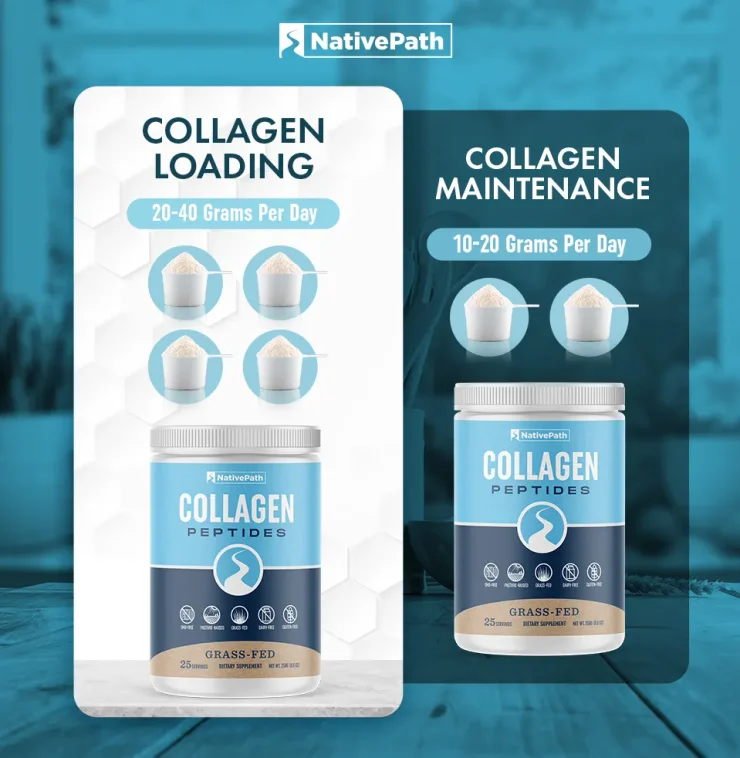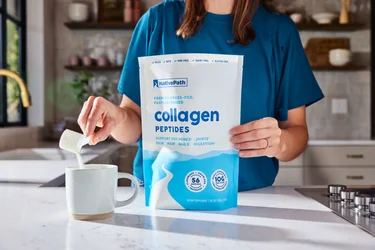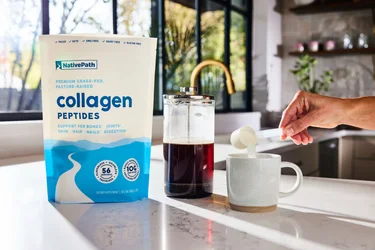You know how certain supplements or medications may lose their effectiveness over time because your brain gets desensitized to them? Well, you may be wondering the same thing about collagen.
To clear this up, there are two important things to know…
1. Collagen makes up one-third of the protein in your body. It’s what gives support and structure to your bones, ligaments, tendons, connective tissue, gut lining, and blood vessels, as well as your skin, hair, and nails (1).
2. Starting in your 20s, your body’s natural collagen production begins to decline by 1% each year (2). (This is why aches and pains, thinning hair, brittle nails, and wrinkles start showing up with age.)
Because collagen makes up a substantial amount of your body’s protein, AND because it begins to decline in your 20s, collagen is something that you will always need. It’s a vital component of human life.
That said, it will not lose effectiveness over time.
In fact, it will do just the opposite—its unique amino acid profile will support and strengthen your bones, ligaments, tendons, connective tissue, gut lining, and blood vessels, as well as your skin, hair, and nails (1).
When it comes to how much collagen you should take a day, we recommend two phases…






